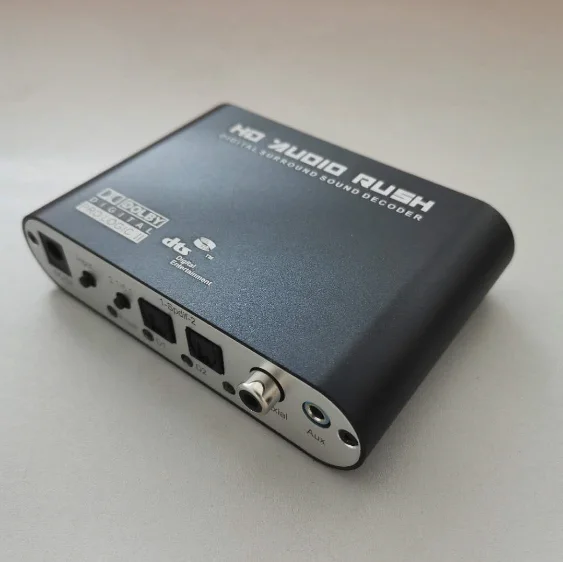

My 5.1ch to stereo matrix, but you're free to downmix however you prefer.: That often leaves the audio a bit quiet, so then I use QAAC's normalising option to peak normalise as it's encoded. It has a normalise function which automatically reduces the volume enough to prevent clipping according to how you combine the channels. Once you've got QAAC working, it should normalise, but I'd generally not use peak normalisation myself, although if I'm downmixing to stereo I sometimes do. This command line will open the audio straight away, but not allow you to seek. The following command line allows you to seek once a file is opened, but opening it can take a while.įfmpeg.exe -i %s -vn -acodec pcm_s24le %d There's no DSP for decoding EAC3 for foobar2000 (not AC3, there's one for that) so I use the command line decoder wrapper and ffmpeg. I say it's "not as much fun" because either foobar2000 can't seek, or it can but it's got to parse the entire file fist which makes opening files slow. and if there's a command line decoder, foobar2000 can use it, although it's not as much fun. If you have something like ffdshow or LAV Filters installed, you can use them to decode any format they support. For some reason I can't find a trustworthy looking link for that one at the moment, so I've attached it for you (see the end of this post). If I happen to want to change the speed of audio (PAL speedup or slowdown) I generally create an AVIsynth script to open the audio and apply the speed change, then I open the script with foobar2000 and convert.Īnd if that's not fun enough, any installed DirectShow codec can be used for decoding. There's also a plugin for decoding AVIsynth scripts, so any audio you can open with Avisynth can be opened with foobar2000:Īnd AVISynth has a function for normalising the audio, so that's one possible way to normalise when you convert with any encoder. I did mention in my post there's plugins for decoding DTS and AC3. So currently as per your instructions, I'm trying Qaac encoder.

But it didn't have normalisation, and it hasn't been developed since 2010. I wanted a VBR encoder for AAC, so I tried Nero AAC and it worked like Pandy said above. I mean DTS is unsupported? I'm only going to use DTS files to convert to AAC. gave an input file (DTS audio in mka format), the output being Apple AAC encoder with 127 TVBR, and this is the error I got. I installed Foobar2000 and the encoder pack like you said. You can create presets and then batch convert by dragging and dropping files onto the GUI. I mainly use it with ffmpeg myself but it should support any command line encoder. " /d /c c:\progra~1\foobar2000\encoders\ffmpeg.exe -i -f wav - | c:\progra~1\foobar2000\encoders\ neroAacEnc.exe -q 0.5 -ignorelength -if -of %d"Īnother GUI you might want to try is AnotherGUI. Or you could add the ffmpeg options to the comman line pandy suggested. I had to mess around for a while to find the magic command line, but it works. The easiest way to set up an encoder configuration in foobar2000 is to select an appropriate encoder preset, adjust it to your liking, and from there if you switch to "custom" foobar2000 will fill in the command line for you, which you can then alter manually if you want to.Īnd not that there's really much need, because foobar2000 supports any command line encoder, but for fun I tried creating an encoder preset to encode with ffmpeg piping the audio to NeroAAC. It can encode multiple files at the same time, it comes with conversion presets for all the AAC encoders or you can create your own, there's DSP plugins for decoding DTS and AC3, it has a built in ReplayGain scanner which can be used to normalise audio (better than peak normalising, in my opinion) there's a third party matrix mixer that can be used for downmixing (DSPs can be added to the conversion chain), and the whole setup can be saved as conversion presets. I mentioned foorbar2000 in the post I linked to as I mostly use it for audio encoding. It has an option -N that can be added to the command line to enable it. QAAC is also the only AAC encoder with the ability to peak normalise. MKVToolNix compensates for the padding when muxing audio but I don't think any other muxing programs do. Partly because it has a -no-delay option that gets it to remove any encoder "padding" from the beginning (extra silence). It should help you find the various AAC encoders and/or the files they depend on. I wrote a bit of an essay here a while back. If you use the default variable bitrate quality setting for each you probably can't go wrong. The AAC encoders should all be good at reasonable bitrates.


 0 kommentar(er)
0 kommentar(er)
